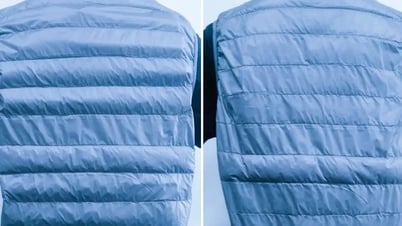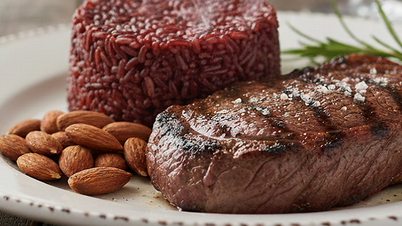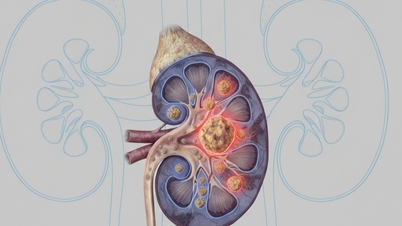
Sweating is a way for the body to cool down - Photo: THIP
An Instagram post by the user “parveen_udaan” suggests that the body’s temperature regulation mechanism depends on blood type, which affects the body’s metabolism. The post has attracted more than 136,377 likes since June 14.
The article states: people with blood type A have slow metabolism and body temperature increases easily; people with blood type B regulate body temperature well; people with blood type AB have the ability to self-regulate body temperature; and people with blood type O have fast metabolism and are prone to hypothermia.
However, on July 21, experts from THIP, a health information verification platform in India, confirmed that most of the article's content was misleading because there was no medical research proving a reliable link between blood type and the ability to regulate body temperature.
Thermoregulation is a physiological mechanism that helps the body maintain a stable temperature (about 37 degrees Celsius), regardless of changing environmental conditions.

False post about blood type affecting body temperature regulation on Instagram - Photo: THIP
The hypothalamus in the brain acts as the central thermostat, monitoring body temperature and triggering responses to increase or decrease heat.
When it needs to warm up, especially in cold weather, the body will constrict blood vessels, shiver and increase metabolism to retain heat.
Conversely, when body temperature increases, mechanisms such as vasodilation, sweating and reduced muscle movement are activated to release heat.
Blood contributes to body temperature regulation by transporting heat from the core of the body to the skin surface for dissipation. Sweat glands also aid in cooling through evaporation.
Body temperature is controlled by the coordination of these systems, unless disrupted by serious illness, dehydration, or harsh environmental conditions.
So does blood type affect the ability to regulate body temperature?
According to THIP, the answer is no. There is no reliable scientific evidence that blood type A, B, AB or O affects this mechanism.
In essence, each person's ability to tolerate heat or cold depends on their metabolic rate, living environment and physical condition, and is not related to blood type.
In summary, blood type is important in transfusion but does not affect thermotolerance.
Source: https://tuoitre.vn/nhom-mau-co-anh-huong-den-dieu-hoa-than-nhiet-khong-20250722100218815.htm






![[Photo] General Secretary To Lam receives the Director of the Academy of Public Administration and National Economy under the President of the Russian Federation](/_next/image?url=https%3A%2F%2Fvphoto.vietnam.vn%2Fthumb%2F1200x675%2Fvietnam%2Fresource%2FIMAGE%2F2025%2F12%2F08%2F1765200203892_a1-bnd-0933-4198-jpg.webp&w=3840&q=75)









































































































Comment (0)